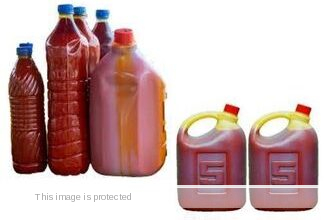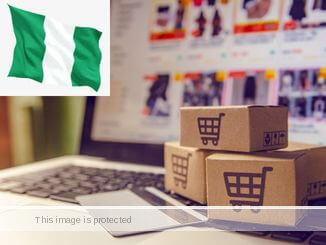How to Start Pure Water Business in Nigeria (Earn ₦1m Monthly)
Do you want to read the PDF plan to start a pure water business in Nigeria, equipment needed, setup cost, risks and problems?
If YES, then this is the only post to read.
You’re on the right track if you’re considering establishing a pure water business in Nigeria.
The sachet and table water business, no matter the size, is one of the most in-demand businesses in Nigeria at the moment.
Everywhere you enter today, you will see people selling pure water, which we also know as sachet water, as written on the nylon.
Pure water business in Nigeria is of diverse sizes based on your budget.
Some hawk pure water around the streets, highways, marketplaces, while some sell at shops and pure water production factories.
The high demand for pure water by Nigerians is one reason for its profitability.
Lack of good and clean water also contributed to pure water profitability.
The sellers make nothing less than a 40% return on investment during this business.
The high profit margin of the pure water business mainly depends on factors like the company’s size, production costs, and selling price.
This also affects how profitable a pure water business in Nigeria is.
Small-scale pure water businesses can open you up to money making.
Those in charge of pure water retail sales also make money from it.
Steps to Starting Pure Water Business in Nigeria
Here are the steps to start a profitable pure water business in Nigeria:
1. Study the Market
Study the pure water market to learn how it works before diving into it.
Research your target audiences, location, competitions, and purchasing power.
Learn the strategies in business so you can be able to make money.
2. Business Plan
Write a business plan that includes your target audiences, business goals, budget, and all the marketing strategies you discovered at the research stage.
A good business plan plays the role of a guard in achieving your business goals and growing your business.
3. Fulfill the Legal Requirement
You need to meet specific regulatory standards before you can officially run a pure water production business in Nigeria.
Ensure you visit the body’s office in charge of the license guiding safe water production in Nigeria to get the permits and licenses.
One of those bodies is NAFDAC.
4. Choose a Good Location
Choosing a suitable location plays a significant role in your pure water business.
While doing this, ensure to target the right audiences and avoid setting up your business anywhere you see.
Yes, we know everyone buys sachet water, but there are locations where you can make more significant sales.
Always target those locations.
5. Choose a Reliable Water Source
For a pure water production business, choose a reliable water source e and a suitable treatment procedure for your product.
You wouldn’t want people to give a bad review of your product.
Install a good water treatment plant to help.
Purify your sachet of water.
6. Packaging and Branding
The importance of packaging and branding must be considered in this context.
Build a mind-blowing brand identity.
Again, let your product packaging speak for itself and attract more customers to your brand for patronage.
7. Marketing and Promotion
After you’ve done everything necessary to build a fantastic pure water brand, it’s time to market your product and getting people out.
Know about the amazing product you have put in place.
Use different marketing channels to create awareness and drive sales.
Create an Instagram account, website, and Facebook page for your business and market your product hard.
If you want to increase your pure water production profitability, follow these steps:
- Cut down on production cost.
- Use sound and quality equipment to avoid wastage.
- Buy all your raw materials in bulk at a cheaper rate.
- Target rich audiences so you can sell at a high price and make a profit.
- Spread your distribution network.
- Do not joke about marketing.
- Always advertise your brand so people can get to know about your business.
Equipment Needed for Pure Water Business
To start a pure water business, you will need these equipments:
- Raw water storage tanks.
- Submersible pumping machine.
- Surface pumping machine.
- Water treatment plant.
- Packaging machine.
- Generator to provide backup power in case of power outages.
- PVC pipes and plumbing fittings.
- Water testing equipment.
- Personal protective equipment (PPE).
Cost of Starting a Pure Water Business in Nigeria
The cost of starting a pure water business in Nigeria today depends mainly on the business size. You can start hawking pure water with as low as ₦1000 to ₦2000.
If you want to open a shop selling in bulk to retail sellers and users, budget around ₦100,000 to ₦500,000.
Small-scale pure water production startup capital should be around ₦2,000,000 and above.
Large-scale pure water business startup capital will cost around ₦5,000,000 and above.
These cost a lot because they involve the purchase of high-quality machinery and vehicles for product supply.
Cost of Setting up a Pure Water Factory in Nigeria
The cost of setting up a pure water factory in Nigeria depends on several factors, including the size and scale of the factory, the type of equipment used, and the location of the factory.
A typical pure water factory in Nigeria can cost between ₦10 million and ₦50 million to set up.
Here is a breakdown of some of the key costs involved in setting up a pure water factory in Nigeria:
1. Land and Rent
The cost of land and rent will vary depending on the location of the factory.
Choose a location that is close to an excellent water source and has easy access to transportation.
2. Building
The cost of building a pure water factory will also vary depending on the size and scale of the factory.
A typical pure water factory will need to have enough space for the water treatment plant, packaging area, and storage facilities.
3. Equipment
The cost of equipment is one of the biggest expenses involved in setting up a pure water factory.
The type of equipment that you need will depend on the size and scale of your business, but some of the essential equipment includes water treatment plant, packaging machine, generator, PVC pipes and plumbing fittings, water testing equipment, and personal protective equipment (PPE).
Other costs involved in setting up a pure water factory include permits and licenses, utilities, marketing and advertising, and labor costs.
Risk in Pure Water Business
The pure water business, also known as the sachet water business, is a popular and lucrative business in many developing countries, including Nigeria.
However, like any business, it is not without its risks.
Here are some of the key risks in the pure water business:
1. Water Quality
The most important risk in the pure water business is the risk of producing and selling water that is not safe to drink.
This can happen because of several factors, including:
- Using a contaminated water source.
- Improper water treatment procedures.
- Poor hygiene practices.
- Damaged packaging.
Consumption of contaminated water can lead to a variety of waterborne diseases, including cholera, typhoid, and diarrhea.
This can damage the reputation of the business and lead to financial losses because of lawsuits and product recalls.
2. Competition
The pure water business is highly competitive, with many small and large producers vying for market share.
This can make it difficult for new businesses to enter the market and for established businesses to maintain their profitability.
3. Government Regulations
The pure water business is subject to several government regulations, including those related to water quality, sanitation, and packaging.
Failure to comply with these regulations can lead to fines, penalties, and even closure of the business.
4. Economic Conditions
Economic downturns can lead to a decrease in demand for pure water, as people cut back on discretionary spending.
This can hurt the profitability of pure water businesses.
Other risks in the pure water business include equipment failure, power outages, theft, and vandalism.
Pure water business owners can mitigate these risks by:
- Investing in high-quality water treatment equipment and procedures.
- Implementing strict hygiene practices.
- Using high-quality packaging materials.
- Regularly testing their water quality.
- Getting all permits and licenses.
- Complying with all government regulations.
- Purchasing insurance to cover against unexpected losses.
Conclusion
Building a pure water business in Nigeria is a favorable venture once you have everything in place.
With all we’ve discussed so far, we believe you understand some things about the business and the steps to get things done.
If you want to sell pure water wholesale, locate the companies you want to sell their product, rent a shop in a good place, purchase a good freezer, and start your business.
Both pure water hawkers and direct consumers will always troop in, especially if your water is always cold.
READ ⇒ 71 Legit Ways to Earn Money in Nigeria (Online and Offline)






